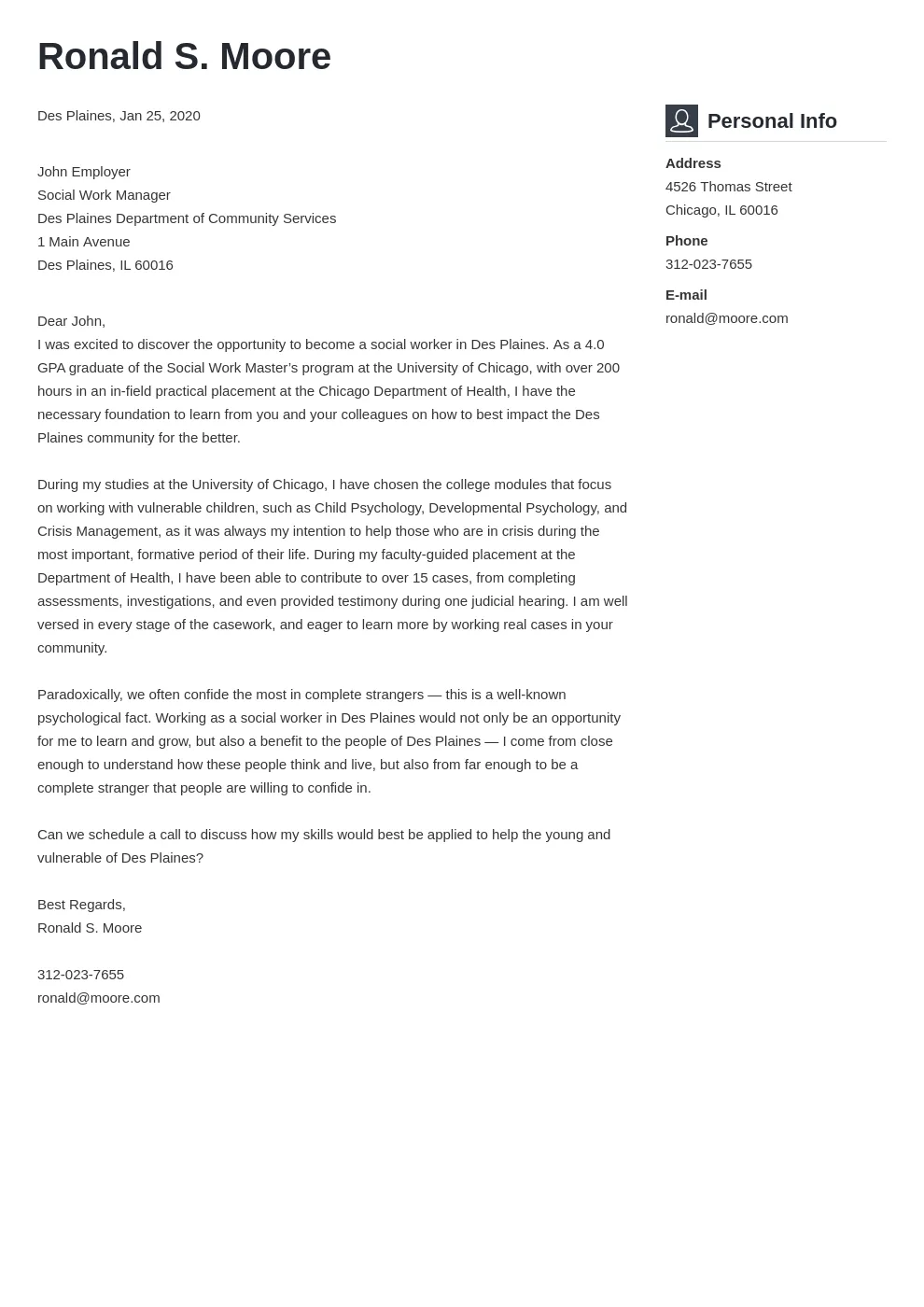Understanding the Importance of a Social Work Cover Letter
In the competitive field of social work, a well-crafted cover letter is your first opportunity to make a positive impression on potential employers. It’s much more than just a formality; it’s a crucial tool for highlighting your qualifications, passion, and suitability for the role. A strong cover letter provides context to your resume, allowing you to elaborate on your experiences and skills in a way that a resume alone cannot. It’s your chance to demonstrate your understanding of the organization, express your genuine interest, and convince the hiring manager that you’re the ideal candidate. Remember, your cover letter is the first step in building a professional relationship with your potential employer, so make it count.
Why a Cover Letter Matters
Your cover letter serves several key purposes. Firstly, it personalizes your application. Recruiters often receive hundreds of applications, and a generic resume can easily get lost in the pile. A cover letter allows you to tailor your application to the specific job and organization, demonstrating that you’ve taken the time to understand their needs. Secondly, it allows you to expand on your resume. While your resume provides a concise overview of your qualifications, your cover letter gives you the space to provide richer detail, explain any gaps in your employment history, and provide context for your experiences. Thirdly, a well-written cover letter reflects your communication skills, which are essential in social work.
Highlighting Your Passion for Social Work
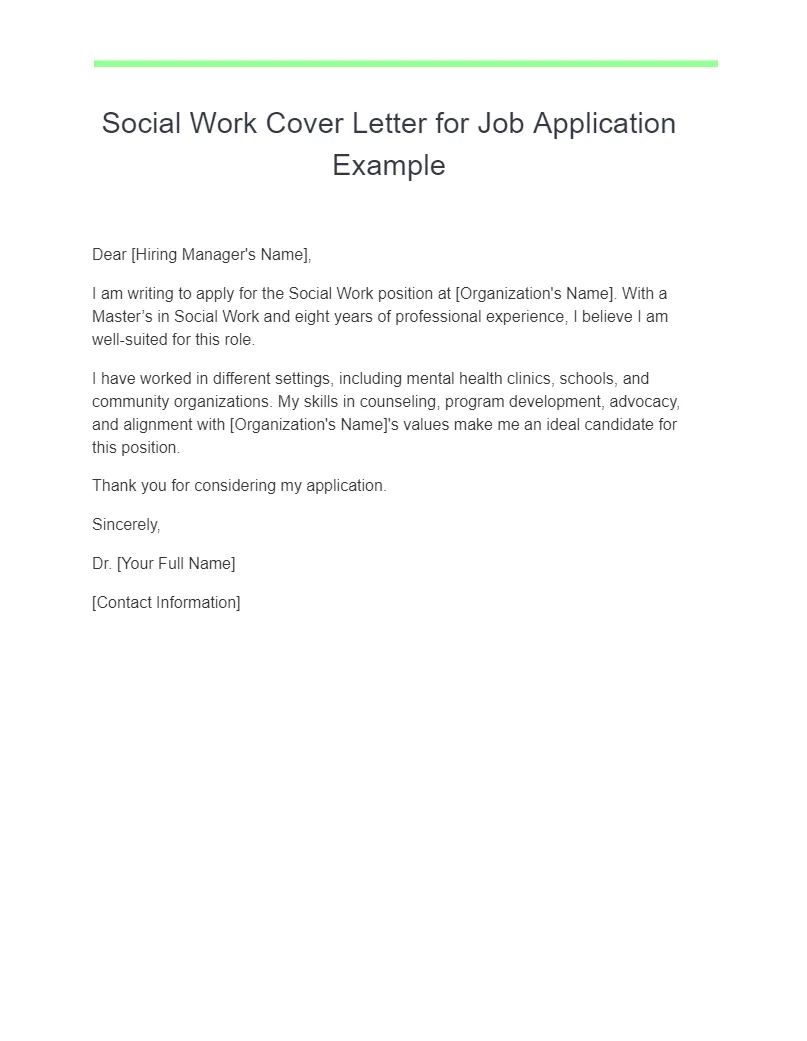
Your cover letter is the perfect place to showcase your passion for social work. This field demands empathy, dedication, and a genuine desire to help others. In your letter, articulate what motivates you to pursue social work. Share a brief anecdote or a personal experience that sparked your interest or solidified your commitment. This shows that you are not just looking for a job, but that you are driven by a deeper purpose. Mention specific populations you’re passionate about serving, or social issues you are keen to address. This helps the employer understand your values and how they align with their mission. Show, don’t just tell, through stories that portray your empathy and your understanding of the challenges faced by vulnerable populations.
Key Components of a Strong Social Work Cover Letter
A successful cover letter is structured, concise, and tailored to the specific job. It should include essential elements that communicate your qualifications and enthusiasm effectively. Every detail matters when crafting the perfect cover letter, from the right tone and phrasing, to the inclusion of important details that will grab the recruiter’s attention. Your goal is to create a compelling narrative that captures the hiring manager’s attention and demonstrates your suitability for the position. Let’s break down the key components of a strong cover letter so you know exactly what to do.
Contact Information and Introduction
Begin with your contact information, including your name, address, phone number, and professional email address. Then, address the letter to the hiring manager or the specific person listed in the job posting. This level of detail shows you have taken the time to research the organization. The introduction is your first opportunity to grab the reader’s attention, which is why it is so important. Your introduction should state the position you are applying for and briefly explain where you found the job posting.
Professional Greeting
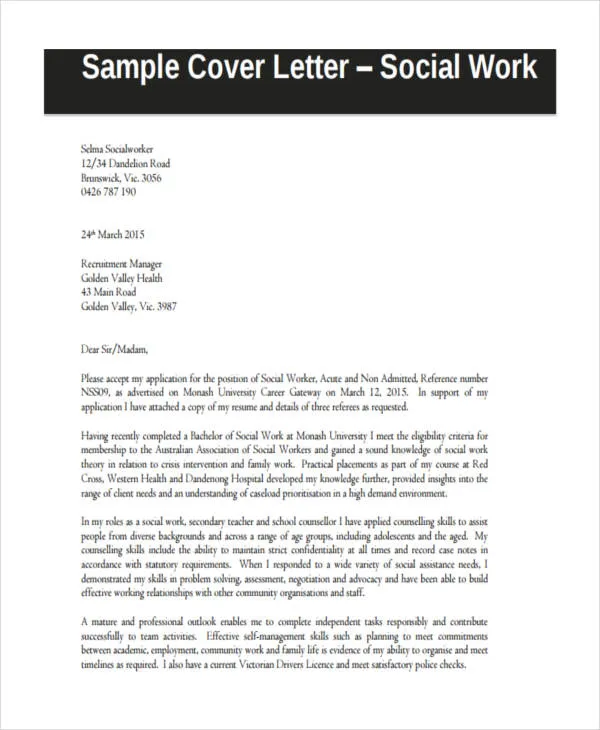
Use a professional greeting, such as “Dear Mr./Ms./Mx. [Last Name],” or “Dear Hiring Manager,” if you are unsure of the name. Avoid generic greetings such as “To Whom It May Concern.” Always double-check the spelling of the recipient’s name.
Expressing Your Interest
In your first paragraph, clearly state the position you are applying for and how you learned about it. Express your enthusiasm for the role and the organization. Briefly mention what drew you to the position and why you are a good fit.
Showcasing Your Skills and Experience
The body of your cover letter should highlight your relevant skills and experiences. Focus on the qualifications mentioned in the job description and how your skills align with their needs. Back up your claims with specific examples and quantifiable results, whenever possible. Show how your past experiences have prepared you for this role by tailoring your approach to the company’s requirements. This is the section where you show why you’re the best candidate and where you can go into greater detail than you have in your resume.
Relevant Skills to Highlight

Identify the key skills that are essential for the social work position. These may include active listening, empathy, communication, critical thinking, problem-solving, and case management. Provide specific examples of how you have utilized these skills in your previous roles or during internships. Demonstrate your ability to work with diverse populations and handle challenging situations.
Quantifiable Achievements
Whenever possible, quantify your achievements. Instead of saying “Improved client outcomes,” state “Improved client outcomes by 15% through the implementation of…” Use data to demonstrate your impact. For example, if you managed a caseload, mention the number of clients you served, and the successful outcomes you achieved. Providing numbers and statistics makes your accomplishments more concrete and impressive.
Demonstrating Cultural Competency
Cultural competency is critical in social work. Demonstrate your understanding and respect for diverse cultures and populations. Mention any experience you have working with specific demographics, and highlight your ability to communicate effectively and build rapport with people from varied backgrounds. If you’ve undergone cultural sensitivity training or have experience working in cross-cultural settings, include this information. Your sensitivity to cultural differences shows you are able to effectively address the unique needs of each client, and shows the employer you have what it takes to be a great social worker.
Addressing the Employer’s Needs
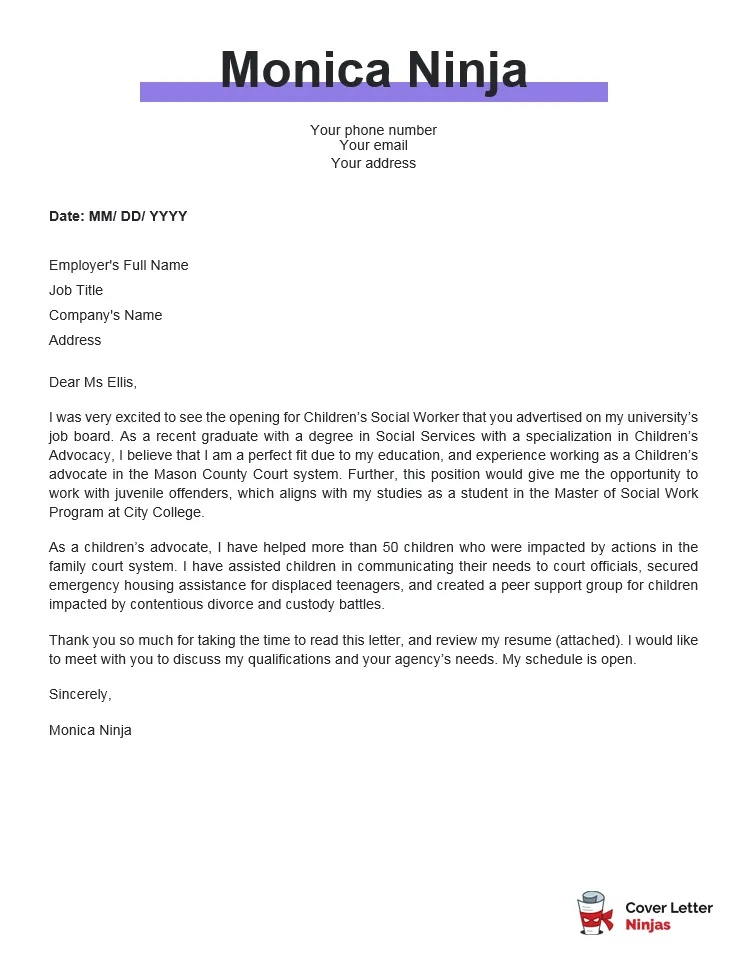
Your cover letter should demonstrate that you understand the employer’s needs and how your skills and experience can contribute to their mission. Research the organization thoroughly to understand their values, programs, and the populations they serve. This understanding is essential for tailoring your letter to align with their specific goals. Remember that you’re not just applying for a job, but you’re becoming part of the team.
Researching the Organization
Before writing your cover letter, research the organization. Visit their website, review their mission statement, and read about their programs and services. Identify their values and the populations they serve. Understanding their needs will enable you to tailor your letter to their specific requirements. Learn what they do, what their goals are, and what challenges they face. This shows that you are genuinely interested in the position and the organization.
Tailoring Your Letter
Customize your cover letter for each position you apply for. Use the job description as a guide to identify the key skills and qualifications the employer is seeking. Highlight your relevant experiences and skills, and explain how they align with the job requirements. Personalize your letter by using the organization’s name, addressing the specific needs they outline, and referencing their mission and values. This level of customization demonstrates your genuine interest and increases your chances of getting an interview.
Writing a Compelling Closing
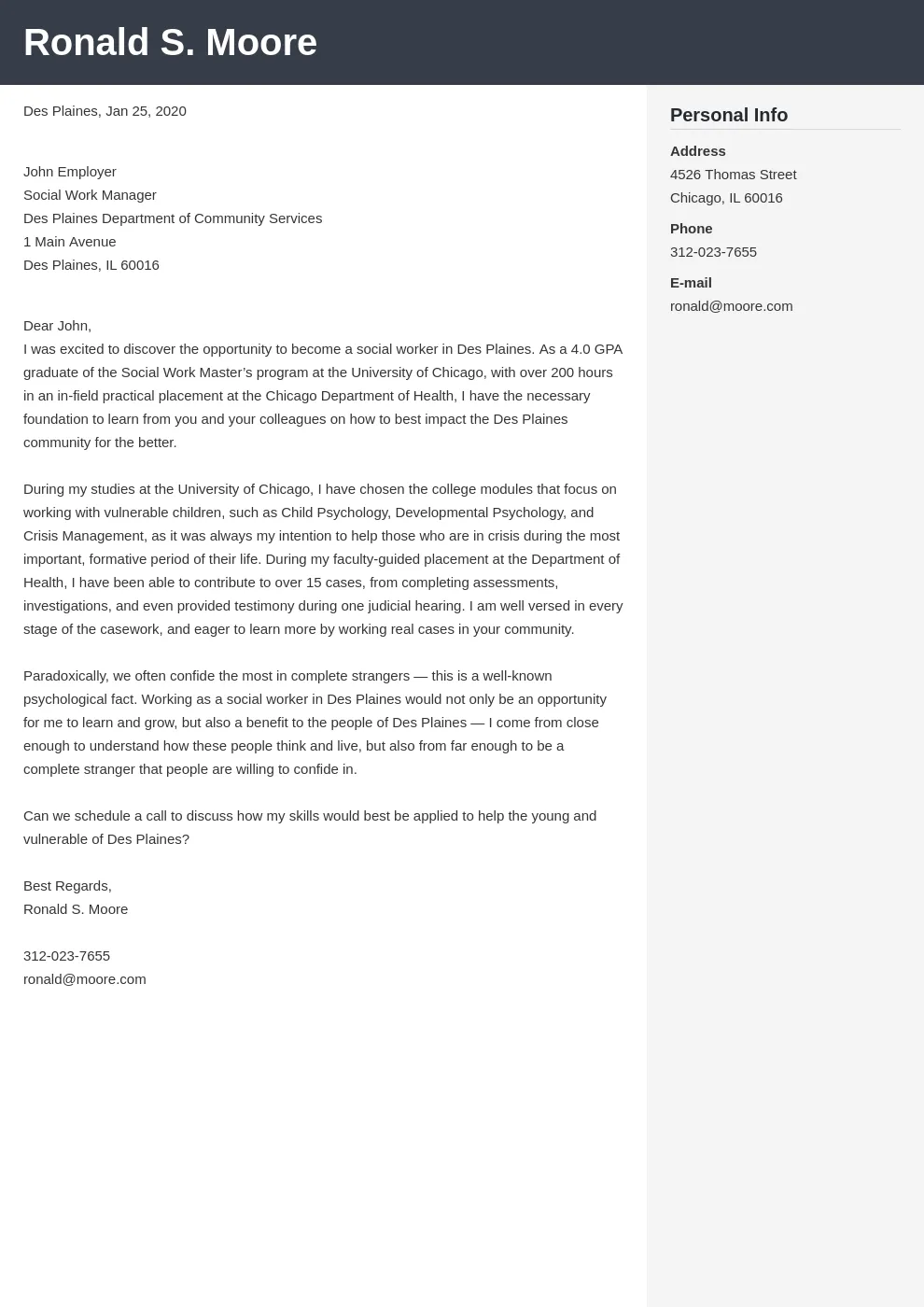
The closing of your cover letter is your final opportunity to make a strong impression. It should reiterate your interest in the position, express your enthusiasm, and provide a clear call to action. Make sure you’re professional, and that you leave the right impression with the employer. You want to make sure you leave a lasting impression with your compelling closing.
Reiterating Your Interest
In your closing paragraph, reiterate your interest in the position and express your enthusiasm for the opportunity. Briefly summarize why you are a strong candidate and what you can bring to the organization. Reiterate your key qualifications and what you would contribute to the role. Show your interest in the position one last time, before you move on.
Call to Action
End with a clear call to action. State that you are eager for an interview and look forward to discussing your qualifications further. Provide your contact information again, and thank the hiring manager for their time and consideration. Make it easy for them to contact you. Make sure your closing is professional and leaves the hiring manager with a positive impression.
Proofreading and Formatting
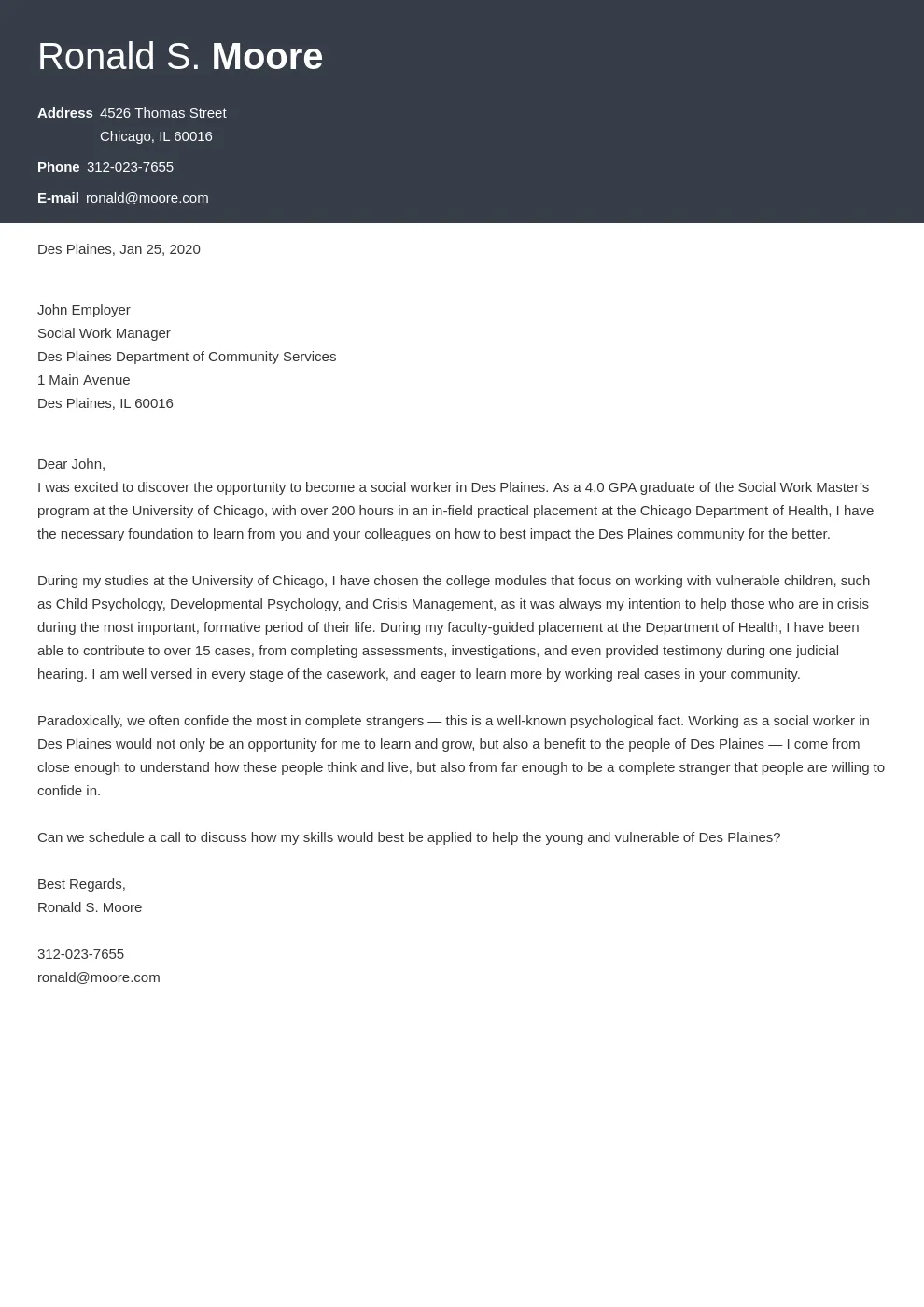
Before submitting your cover letter, carefully proofread it for any errors in grammar, spelling, and punctuation. A well-formatted and error-free cover letter demonstrates professionalism and attention to detail. Have a friend or career advisor review your letter for feedback. Use a professional font, such as Times New Roman, Arial, or Calibri, and ensure your letter is easy to read. Maintain consistent formatting throughout, with clear headings, bullet points, and white space. Ensure it is visually appealing, and easy to navigate. A polished and professional cover letter greatly increases your chances of getting an interview.
